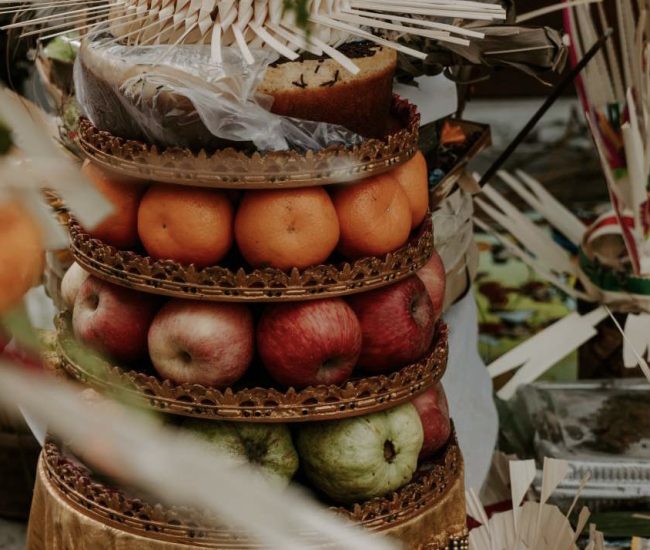Gebogan: Bali’s Towered Offering
Gebogan is a traditional offering used during religious ceremonies, festivals, and other important occasions. It is one of Bali’s most eye-catching offerings, tall and colourful, with various fruits and flowers arranged into a tower. During certain ceremonies the gebogan are carried upon the heads of women in long procession (known as Mapeed), making for a
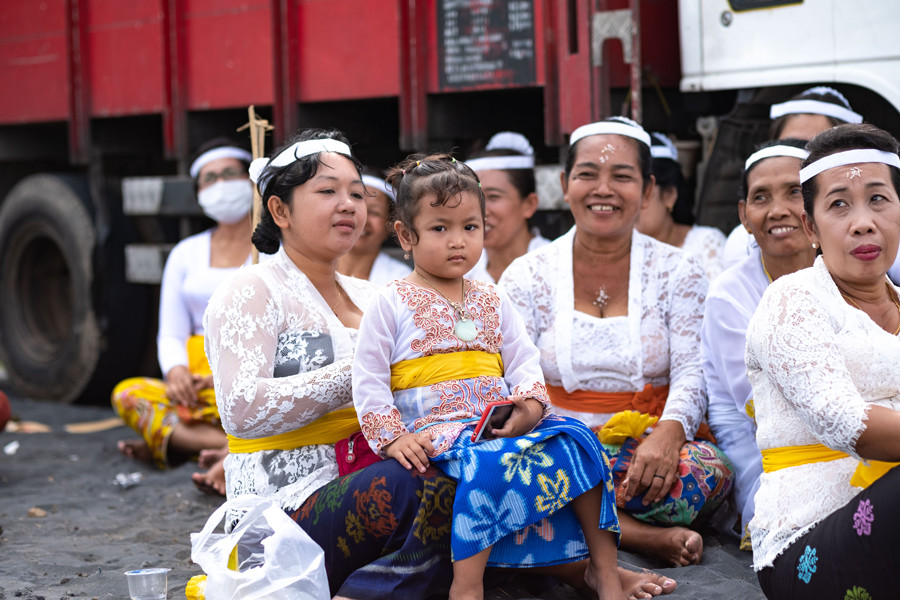
Kebaya: The Traditional Attire of Balinese Women
Adorned in an elegant lace blouse and batik sarong called kamben, you might notice the Balinese women wearing this attire on their way to the temple for prayers and religious ceremonies. This is the kebaya: the traditional attire of the Balinese women. The kebaya has been the traditional attire of Balinese women since the Dutch
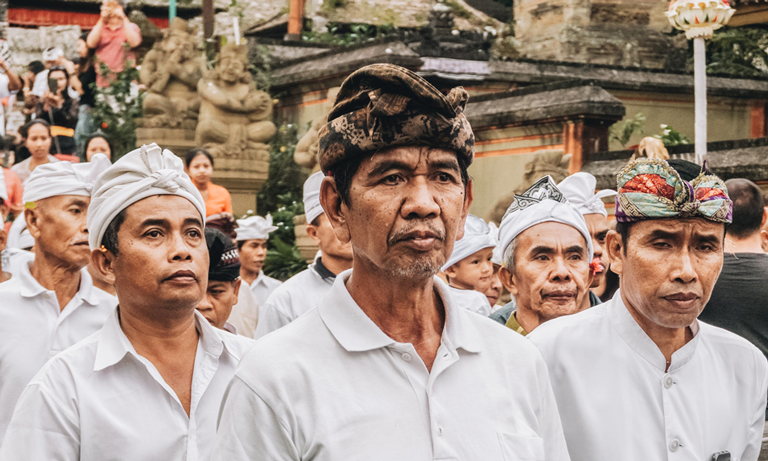
Udeng : The Traditional Headdress of Balinese Men
Whether in white, black, red or in batik motif, the traditional headdress worn by Balinese men, known as udeng, has a unique philosophy and meaning behind it that plays an important role in the everyday life of Balinese men. The Balinese Hindu people are a community that holds their rich culture and strong beliefs very
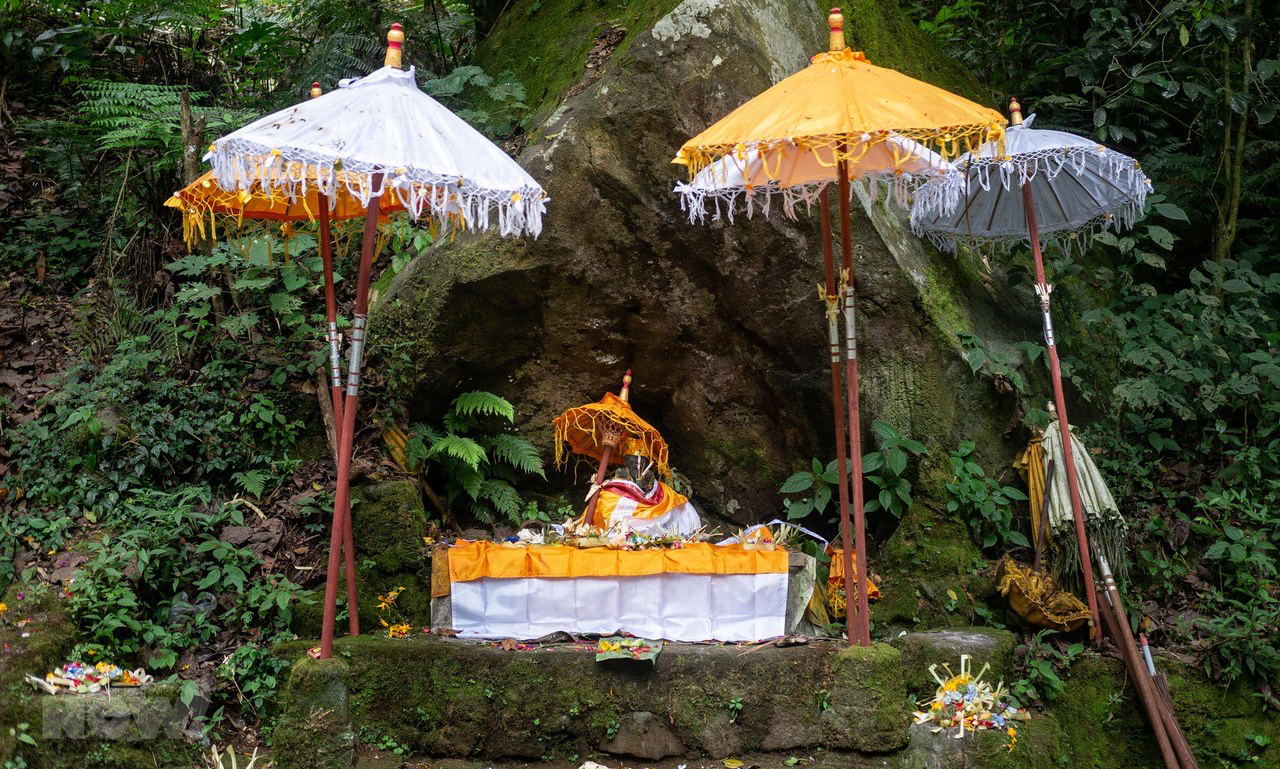
Tedung : Bali’s Ceremonial Umbrella
Shining in white, yellow, or even at times embellished with the golden prada print, the Balinese umbrella, known as a tedung, is an essential feature in Balinese Hindu worship. As decorative as they are – often used to culturally adorn entrance ways of restaurants and hotels – tedung are most at home when standing tall
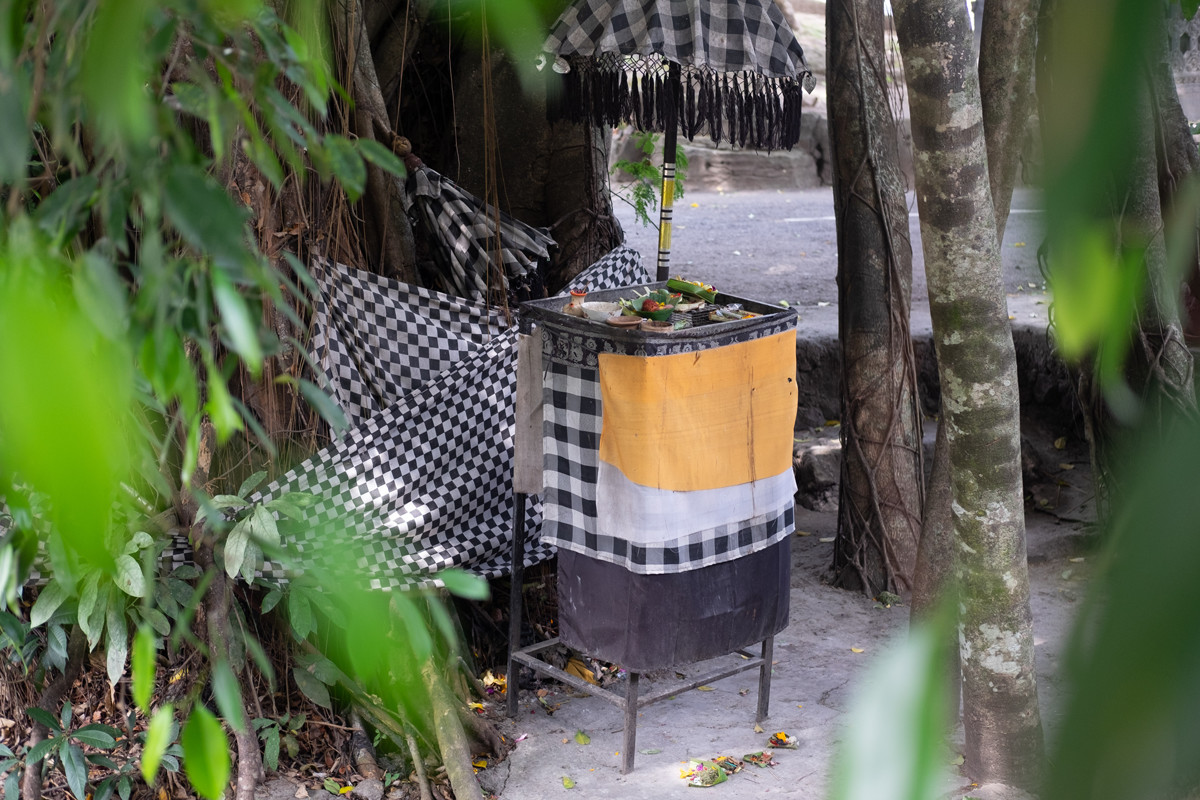
Kain Poleng : Bali’s Chequered Cloth of Balance
Wrapped around trees, skirting shrines and bedecking temples, or worn by the Balinese themselves as a sarong (or saput), the kain poleng, or poleng cloth, is symbolic of one of Bali’s most important philosophies. In its most common form, the kain poleng is a black and white chequered cloth, but other versions exist which incorporate
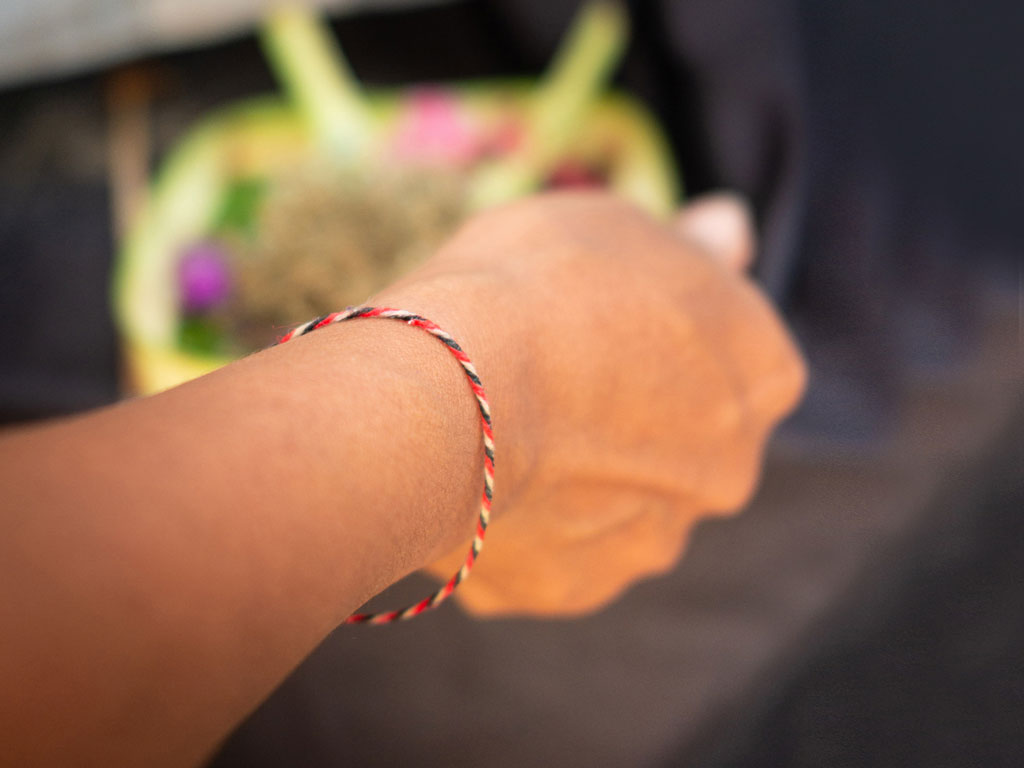
Tridatu: The Colours of Bali’s Holy Trinity
Engraved onto pillars of houses and temples, donned by stone sculptures, and worn around people’s right wrists; the colours white, red, and black are omnipresent in Bali. It’s evident in many different forms, with the tri-coloured bracelets attached to the arm being the most common we see today. The simple yet significant philosophy behind this
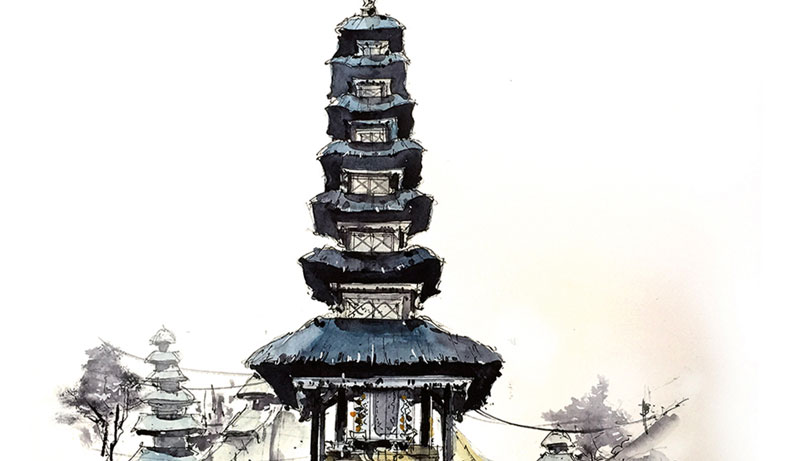
Meru Towers: The Principle Shrine of a Temple
When you travel around Bali and witness the many temples scattered on the island, you will notice some very distinct architectural features. When it comes to the larger temples, the most impressive feature you will see are the meru, the multi-tiered shrines that tower high-above the rest. The term ‘meru’ is a reference to Mt.
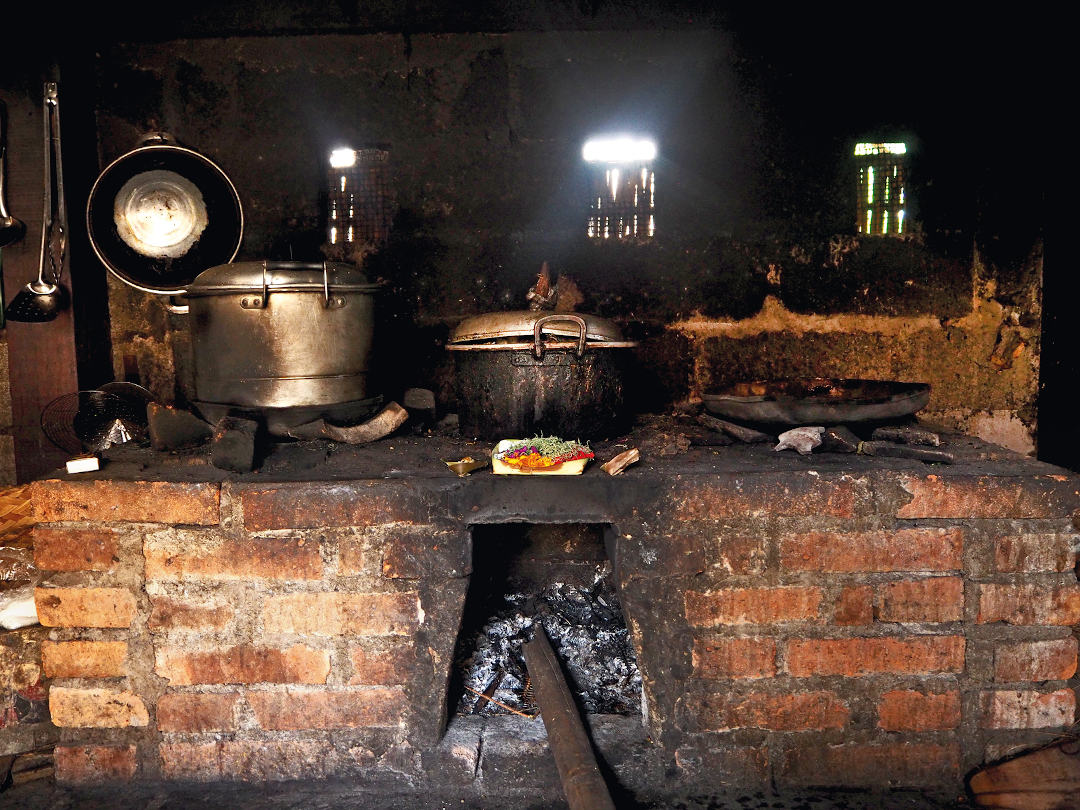
Paon: The Philosophy of the Balinese Kitchen
In Bali, the kitchen is more than just a place to cook. It is an integral component of the Balinese compound, imbued with philosophy and age-old traditions. You would expect a cultural heritage as dynamic as Balinese cuisine to have its ancient recipes retained on tangible means. However, unlike other traditions and customs in Bali,
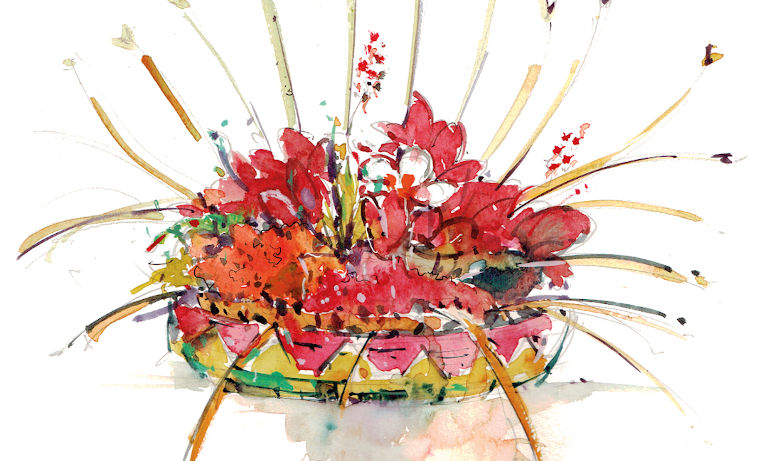
Canang Sari : Bali’s Daily Offering
Found on almost every street corner, temple, beachfront, office space, local market and even Bali’s most modern lifestyle establishments, the canang sari is the most pervasive form of offering on the island. Visitors will often watch in awe as the Balinese Hindu gracefully present the beautifully prepared canang sari, wafting burning incense soon after, but
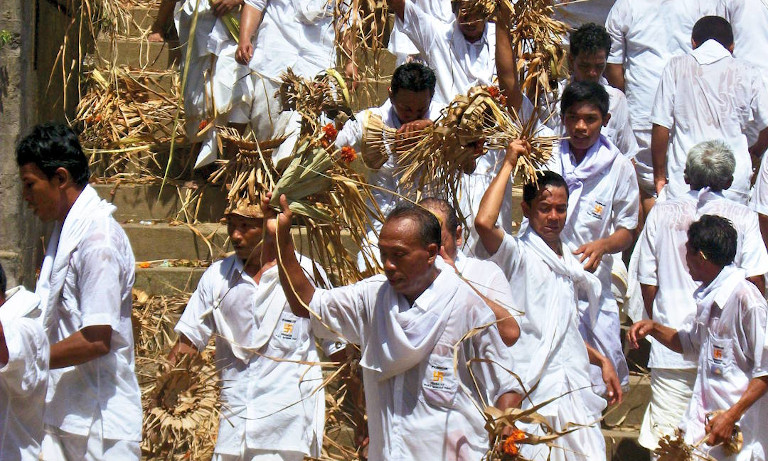
Complexities of the Banjar Community in the Modern World
Massive development has in many ways changed the landscape of Bali from being the home to an agricultural society to a now bustling tourism industry. The establishment of posh restaurants, luxury resorts, and glittering night clubs have led to many mistaking Bali as Indonesia’s capital of hedonism, not Hinduism. But if you look past the

Banten Jotan: An Offering for Good and Evil
The Balinese religion is dominated by “deeds” rather than thought, by orthopraxy rather than orthodoxy. In rituals thus performed, peculiar attention is paid to the offering of food to what are called the witnesses (saksi) of the world: the gods (dewasaksi); the humans (manusasaksi) and the demons (butasaksi). Most tourists have seen, conjured up by

